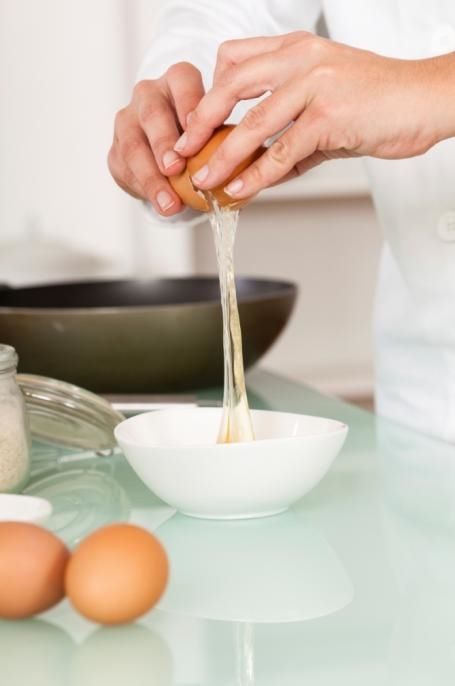British Lion eggs are all subject to the stringent guidelines of the British Lion Code of Practice, which guarantees the safety standards of Lion marked eggs. British Lion eggs are recognised by the Food Standards Agency (FSA) as being safe to be served runny or even raw to vulnerable groups such as pregnant women, infants, children and elderly people. It’s important for caterers to ensure that each egg delivered is stamped with the British Lion mark on the shell before using them.
It is the caterer’s responsibility to serve food meeting due diligence requirements, as well as storing and handling eggs correctly so the product can be consumed safely. Using eggs produced to British Lion standards and following simple guidelines, can help meet your due diligence requirements:
- Use British Lion eggs - look for the Lion mark on eggs and packs.
- Use within the best-before date stamped on each British Lion egg.
- Caterers should store eggs in a refrigerator; if this is not possible caterers should store eggs in the coolest storage area possible whilst keeping to a regular delivery pattern with a minimum volume of orders.
- Store eggs separately from other foods especially raw meat and strong smelling foods.
- Eggs should be allowed to acclimatise to room temperature before cooking for around 30 minutes before use.
- You should not use cracked or dirty eggs.
- Cooked egg dishes should be consumed as soon as possible after cooking and should be stored in the refrigerator if not for immediate use.
- Make sure hands are washed before and after handling shell eggs.
Time and temperature control are important factors in guaranteeing the safety of the eggs you serve to consumers. If salmonella is able to reach the inside of an egg, for example if the shell becomes contaminated, salmonella could grow if it reaches the yolk, which is more likely to happen if the egg is stored for more than three weeks.
However, this growth can be prevented or minimised when storing eggs at low temperatures. It’s important to keep the eggs at a consistent temperature, especially in the kitchen where temperatures are prone to fluctuating - this can speed up the permeability of the yolk membrane. If salmonella is present, low temperature storage will restrict the growth of the contamination. It will also render any salmonella present more heat-sensitive making it easier to neutralise in the cooking process. Eggs should therefore be stored at a constant temperature below 20°C.
For more information and posters with egg handling and storage advice click here.
Visit our Foodservice Resources section for print-out guides on egg safety, handling guides for caterers, eggs & salmonella and catering student lecture plans.
